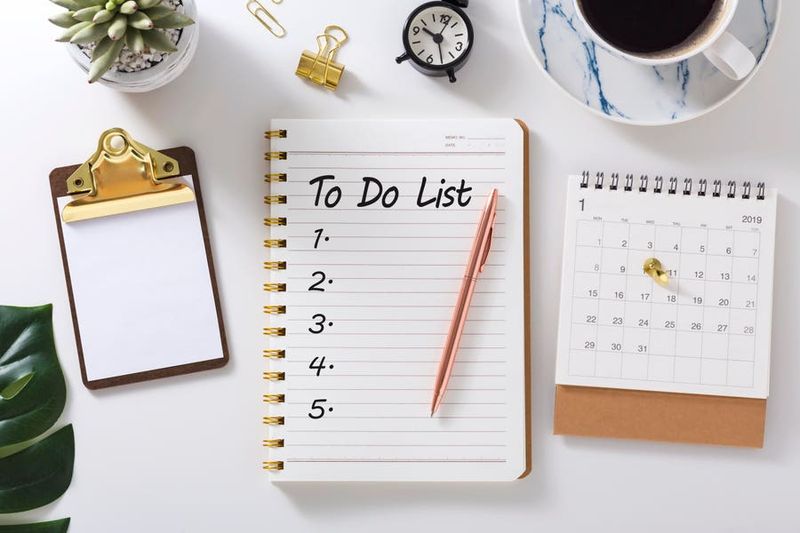16 Ways To Build Self-Worth And Overcome Insecurities
You ever sit in your car after a long day and feel like you’re carrying a backpack full of rocks nobody else can see? Maybe you wonder if you’re too much, or not enough, or both at the same time. I’ve been there. Most of us have, even if we pretend otherwise.
Here’s the truth: building self-worth isn’t a one-time epiphany; it’s a hundred tiny rebellions against that inner critic who never seems to sleep.
If you’re tired of apologizing for existing, or chasing some version of yourself you think will finally be “enough”—read on. These 16 ways aren’t magic, but they’re real. They’re honest. And they might just help you breathe a little lighter.
1. Talk to Yourself Like You Love Yourself

You know that voice in your head—the one that points out every mistake, every flaw? I used to think I had to listen to it. I didn’t.
Imagine what would happen if you talked to yourself like you’d talk to your best friend after a bad day. Not pretending everything’s perfect, but reminding her she’s worth loving, even when she messes up.
Speak kindness out loud, even if it feels weird at first. I stood in front of my bathroom mirror and said, “I’m proud of you for trying.” It changed nothing and everything. That’s how self-worth grows: word by word, day by day. Start small. You don’t have to believe it yet—just say it. One day, you might hear it and finally believe it’s true.
2. Call Out Your Insecurities (By Name)

There’s something wild about writing your insecurities down—like dragging them out of the shadows and into the daylight. I once scribbled mine in a notebook, half ashamed, half relieved.
Name them. “I think I’m not good enough at my job.” Or “I worry I’m too much for people.” When you put it on paper, it loses some of its power. It’s not a curse anymore; it’s just a string of words that can be questioned.
Therapists swear by this. It’s not about fixing everything overnight. It’s about knowing what you’re up against so you can stop fighting ghosts. Start with one insecurity. Say it out loud. You’ll realize it’s smaller than you thought—or at least, more manageable.
3. Set Small, Unsexy Goals

Big goals are overrated. Want to feel better about yourself? Set tiny, gritty goals nobody will ever clap for. Drink an extra glass of water. Reply to that awkward email. It’s not about changing your whole life in a week—it’s about proving you can show up for yourself, over and over.
The smaller the goal, the quicker you win. Here’s a tip: make a list of 5 small things you can do today that take under 10 minutes. Then do one. That’s momentum. That’s proof. And those wins, as unglamorous as they are, start stacking up.
Before you know it, you’re less focused on failing and more interested in what else you can handle. One checkmark at a time.
4. Question Everything That Hurts

Most of what hurts us starts with a story we never picked for ourselves. “You’re too loud.” “You’re not smart enough.” Who told you that?
One night, I sat on my couch and wrote every painful thing I believed about myself. Then I dared myself to ask: “Is that even true?” Sometimes the answer was no. Sometimes I realized I was repeating someone else’s fears.
Doubt your doubts. If it hurts, it deserves to be questioned. Even if you can’t replace the pain with positivity yet, poking holes in the old stories makes room for new ones. If it hurts, it deserves to be questioned. Don’t let unexamined pain run your life. Instead try this: pick one belief that hurts, and write down three reasons it might be wrong. Start there.
5. Stop Scrolling—Start Living

Comparison is poison, and social media is the dealer. I spent years scrolling through highlight reels, convinced everyone else was happier, more successful, more loved.
The day I started leaving my phone in another room, things shifted. I noticed how the world felt: the smell of coffee, the way sunlight hit the floor. I started living in my own story instead of someone else’s.
Ask yourself: What would I notice if I wasn’t looking at a screen right now? Then unplug for one hour. See what happens. You might find that the most important parts of your life were waiting for your attention.
6. Ask for Help—Even If You Hate It

I used to think needing help meant I was weak or failing. Turns out, asking is strength wearing a nervous smile. The first time I called a friend and said, “I’m not okay,” I felt exposed—but also, less alone.
Letting people show up for you is its own kind of bravery. You’re not a burden for needing support. You’re human.
If you’ve been white-knuckling it alone, try reaching out. A text, a call, a coffee. It won’t fix everything, but it breaks the illusion that you have to handle it all. That’s where self-worth starts—when you realize you’re worth caring for, even by others.
7. Celebrate Micro-Victories (Yes, Even Those)

Remember that time you did something small and nobody noticed? Celebrate it anyway. I once felt ridiculously proud for making my own doctor’s appointment. Tiny victory, huge relief.
Self-worth isn’t built in grand gestures. It’s in the moments you show up for yourself, when nobody’s watching.
Fist pump, happy dance, or just whisper, “Nice one.” Those moments matter, maybe more than the big wins. If you wait for someone else to notice, you’ll be waiting forever. So, be the one who cheers yourself on—no shame, just honesty.
8. Let Yourself Fail, Then Stay

Failure used to make me want to disappear. I’d mess up a project or relationship, and my first instinct was to bolt. But staying—sitting with the mess instead of running—taught me more than any win ever did.
One night, surrounded by crumpled notes, I actually laughed. It wasn’t a cruel laugh, but a surrender. I realized: failing doesn’t make me unlovable. It makes me real.
Give yourself permission to fail and stay. Don’t ghost your own life when things get ugly. Remaining in the room, even when you’re embarrassed, is the bravest thing you can do.
9. Cut Out the Energy Vampires

You know that drained feeling after certain conversations? That’s not you being oversensitive. Some people thrive on drama, criticism, or negativity.
I started noticing who left me feeling hollow and who left me feeling whole. Cutting out the energy vampires wasn’t easy—I worried I’d be alone. But the peace was worth the awkward goodbyes.
You don’t owe everyone access to your time. Create distance, even if all you do is take longer walks or say no to some invites. It’s not mean. It’s necessary. Your self-worth grows stronger in healthier company.
10. Have a “No Apology” Day

“Sorry, can you repeat that? Sorry, I just—sorry!” I caught myself apologizing for existing, for taking up space. One day, I challenged myself: no apologies unless I actually messed up.
It was harder than I thought, but freeing. I learned how often I said sorry just for being myself, or for things outside my control. My friend noticed, too—and she started trying it.
Have your own “no apology” day. Keep track. See which sorries you drop out of habit, and which ones matter. You’re allowed to take up space, to speak, to be.
11. Redefine What Success Looks Like

For years, I chased someone else’s definition of success: perfect job, spotless apartment, always composed. It just made me tired.
One afternoon, I wrote my own definition. Success became: getting through hard days, saying no when I needed rest, laughing without checking if it was too loud. It meant being myself, not someone’s checklist.
Try it. Write your version of success—not your parents’, not Instagram’s. Hang it somewhere you’ll see every day. Suddenly, your worth isn’t tied to someone else’s scoreboard. It’s yours to define and defend.
12. Do One Brave Thing (Even If It’s Tiny)

Bravery isn’t about skydiving or quitting your job. Sometimes it’s speaking up in a meeting or wearing that shirt you secretly love. I remember the first time I asked a question in a crowded room—my voice shook, but I did it anyway.
Do one thing that scares you, even if nobody else notices. It doesn’t have to be epic; it just has to be real.
Every act of courage, no matter how small, tells your brain: “Look, I survived.” The more you practice, the more your self-worth wakes up—and stretches its legs.
13. Practice Saying No Without Explaining

I used to think every “no” needed a lengthy excuse—otherwise, people would be mad or disappointed. But explaining every boundary drained me more than just saying no.
Try it: next time, say “no” (or “I can’t”) and let the silence do the heavy lifting. It’s awkward, but honest. You don’t need to justify your limits.
The first time I practiced this, my chest tightened. Then I realized—the world didn’t end. Saying no is a declaration: you matter, your time matters, your energy matters. And that’s enough.
14. Give Yourself Credit for Surviving

We rarely give ourselves credit for simply surviving. I flipped through old photos once and realized: I made it through things I thought would break me.
Surviving is underrated. It doesn’t always look like thriving—it looks like getting up, eating breakfast, making it to work, laughing when you didn’t think you could. That’s worth honoring.
Take a moment to appreciate the fact you’re still here. You’re not weak for feeling tired. You’re resilient for still standing. Give yourself the credit you’d give anyone else who’s fought hard battles and kept going.
15. Make Peace with Your Body

My body used to feel like the enemy—never thin enough, strong enough, pretty enough. I spent years criticizing it, hiding it, trying to trade it for someone else’s.
One day, I looked in the mirror and tried to see myself as a friend, not a project. I traced stretch marks, scars, softness, and whispered thanks. Not because I loved everything, but because my body kept me alive.
Making peace with your body isn’t about loving every inch. It’s about calling a truce, treating it with respect, and recognizing it’s home. That’s self-worth you can feel, skin deep and deeper.
16. Find Joy in Who You Already Are

Joy isn’t something you earn by fixing yourself first. I spent too many years waiting to become “better” before letting myself be happy.
But some of my best memories happened when I stopped trying so hard—laughing too loud at a barbecue, singing badly in the car, being weird on purpose. Self-worth isn’t the final prize; it’s what lets you enjoy being yourself, right now.
Let yourself find joy in the imperfect, the ordinary, the real. Celebrate who you are, not just who you’re working to become. Sometimes, that’s all the healing you need.







